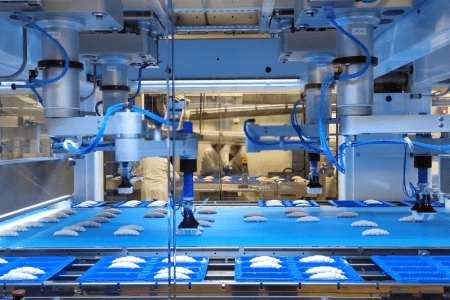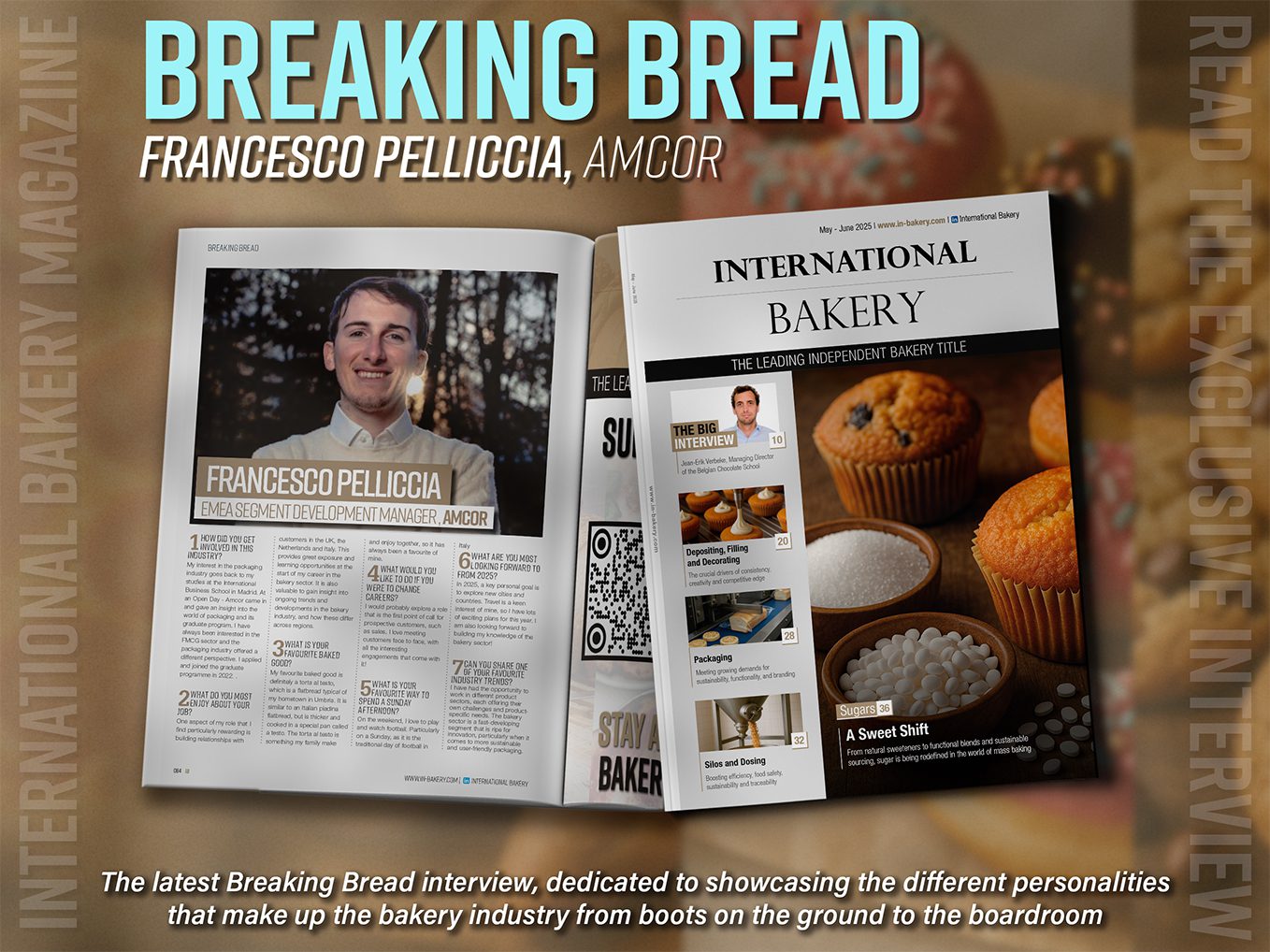Arjen Eberwijn, Rademaker Business Development Manager, explains how the Radini bread line brings a new level of automation to artisanal baking
Can you give us an overview of the new Radini bread line and what makes it a game-changer for craft bakers?
Radini’s ability to combine industrial-grade automation with the flexibility and adaptability required by artisanal bakeries offers product consistency and quality. This allows them to scale production while maintaining the quality that defines their products, resulting in a perfect balance of efficiency and artisanal touch.
How does the Radini bread line ensure that the artisanal quality of products is maintained while automating production processes?
The Radini bread line ensures that the artisanal quality, look, and feel are maintained while automating production, incorporating manual processes when desired, for example, by adding a manual workstation where dough pieces can be individually shaped, twisted, or folded by hand. This preserves the handcrafted feel of the products, a key feature for artisan bakeries. Additionally, the line’s modular design allows for flexible configurations that cater to a variety of artisanal recipes and techniques, ensuring that the unique characteristics of each product, such as texture and shape, remain unchanged despite the automated process. The Radini bread line is designed for stress-free dough processing, with gentle dough handling that retains dough structure integrity, ensuring the best products when baked.
For smaller, craft-focused bakeries, scalability is key. How does the Radini bread line support bakeries looking to expand without compromising their identity or product integrity?
The Radini bread line supports scalability for smaller, craft-focused bakeries by offering modular and interchangeable components that allow for flexible production setups tailored to a bakery’s specific product range. The modular setup allows bakeries to start off with a minimum configuration supported by manual shaping, as long as production volumes remain manageable by hand. Once production volumes increase, additional components can be purchased and added to the line configuration to increase automation. This flexibility enables them to automate the majority of their processes without losing control over artisanal aspects, such as hand-finishing dough at manual workstations, allowing bakeries to grow and meet demand without sacrificing the quality or uniqueness of their products.
How important is it for bakers to be able to customise their bread products, and how does the Radini bread line facilitate this?
For bakers, the ability to customise their bread products is crucial, allowing them to maintain the unique character and quality of their offerings, which is essential for standing out in a competitive market. The Radini bread line facilitates this customisation by offering flexible, modular components that can be configured to produce a wide range of bread doughs and shapes, from rectangular to oval loaves, and products with different textures, crusts, and decorations. The line enables quick changeovers between different dough types, allowing simple adjustments to the sheet width and product shapes, enabling artisan bakers to efficiently create 15 to 20 different fully automated varieties with consistent quality. Additionally, the manual workstations preserve the artisanal touch, allowing for hand-finishing techniques that further customise the final product and expand the product range.
What are some common challenges craft bakers face when transitioning to automation, and how does the Radini bread line address these?
When bakers begin to automate, there are often concerns about whether their unique products will retain the same taste and appearance. Before a customer buys a production line, there is an opportunity to do a production run in our Technology Centre, where products are made in a production environment with the customer’s ingredients and requirements. Thanks to good collaboration between the customer and our dough technologists, we can create the product they want while demonstrating how the automated production process works on a Radini line.
Operating the line can be a challenge, especially with the lack of experienced and well-trained staff. Our intuitive operating panel is very operator-friendly, with a recipe structure where all parameters are stored, including setpoints and positions of tools on the line. In our Radini experience centre, we can train our customers’ operators before the line is installed on-site. Rademaker also offers ongoing training to ensure bakers keep their knowledge current, learning about combining bakery expertise with automated production to get the best out of their Radini production line.
Read more latest industry news and developments in our free to download magazine.
Never miss a story… Follow us on:
International Bakery
@int_bakery
@Bakeryint
Media contact
Joseph Clarke
Editor, International Bakery
Tel: +44 (0) 1622 823 920
Email: editor@in-bakery.com






